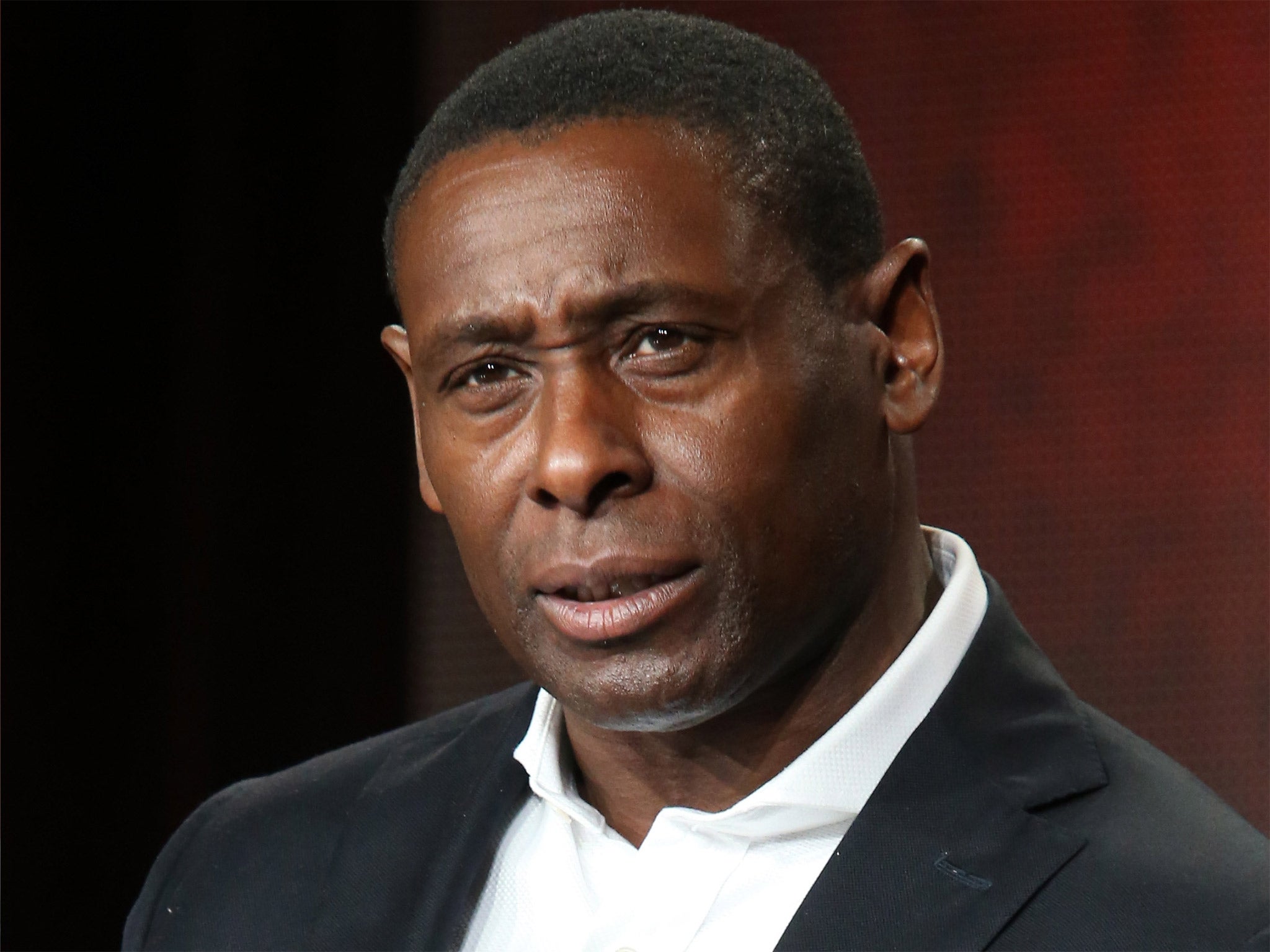Homeland star David Harewood appeals for black people to donate stem cells
Star urges parents from African-Caribbean communities to shake off “historical baggage”

Your support helps us to tell the story
From reproductive rights to climate change to Big Tech, The Independent is on the ground when the story is developing. Whether it's investigating the financials of Elon Musk's pro-Trump PAC or producing our latest documentary, 'The A Word', which shines a light on the American women fighting for reproductive rights, we know how important it is to parse out the facts from the messaging.
At such a critical moment in US history, we need reporters on the ground. Your donation allows us to keep sending journalists to speak to both sides of the story.
The Independent is trusted by Americans across the entire political spectrum. And unlike many other quality news outlets, we choose not to lock Americans out of our reporting and analysis with paywalls. We believe quality journalism should be available to everyone, paid for by those who can afford it.
Your support makes all the difference.Some black Britons are reluctant to volunteer as stem cell donors because they fear a “backlash” from community elders who see donation as disrespectful to God, the actor David Harewood has said.
In a heartfelt appeal, the Homeland star urges parents from African-Caribbean communities to shake off “historical baggage” and encourage their children to donate.
Thirty times more white people than African-Caribbean people registered to donate stem cells. Donation can be lifesaving for people with blood cancers, but because of the shortage of African-Caribbean donors, black patients have only a 20 per cent chance of finding a match, compared with about 60 per cent for white people.
In an article for The Independent published online today, Harewood, who has donated stem cells himself, says some young black people have been met with “confusion, incredulity and even backlash” after donating.
“Unlike so many other injustices that are faced by the African and Caribbean communities, this one’s on our own shoulders,” he writes.
“Our community’s apparent reluctance to be plugged into a machine for four hours, while our stem cells are removed (in a process similar to giving blood), may be understandably rooted in a long-standing distrust of institutions, and in particular a history of substandard treatment within the healthcare system.
“But it’s time to shake off this historical baggage. The only people who suffer are our own brothers, sisters, children, grandparents – and ultimately ourselves.”
Young people aged 16 to 30 can sign up to donate stem cells. Previously a bone marrow donation was required to treat blood cancers, but now the same stem cell treatments usually require a much less invasive procedure.
Harewood said it was important to convince religious leaders and community elders. “Their generation worked hard to provide for their children and see them grow – some may wonder what their parents might think of them quite literally ‘giving away’ a part of themselves. Not only that but wouldn’t we be disrespecting God by failing to return the body as He made it?” he writes.
“Ironically, it seems to be precisely because of our utmost respect for our bodies, our values, our heritage and our families that we’re preventing ourselves and others from performing the ultimate act of humanity.”
Harewood signed up to the Anthony Nolan register in 2006, and was found to be a match with a stranger a few years later. He described the experience as “like winning the lottery, the biggest and most beautiful privilege I could ever have hoped for”.
The charity helped find matches for 1,200 people with blood cancers and blood disorders last year. Asian and other ethnic minority groups are also short of donors.
Anthony Nolan and the African-Caribbean Leukaemia Trust (ACLT) have launched the ‘Being African-Caribbean’ campaign. Find out more at www.anthonynolan.org/africancaribbean and share what #BeingAfricanCaribbean means to you.
Join our commenting forum
Join thought-provoking conversations, follow other Independent readers and see their replies
Comments